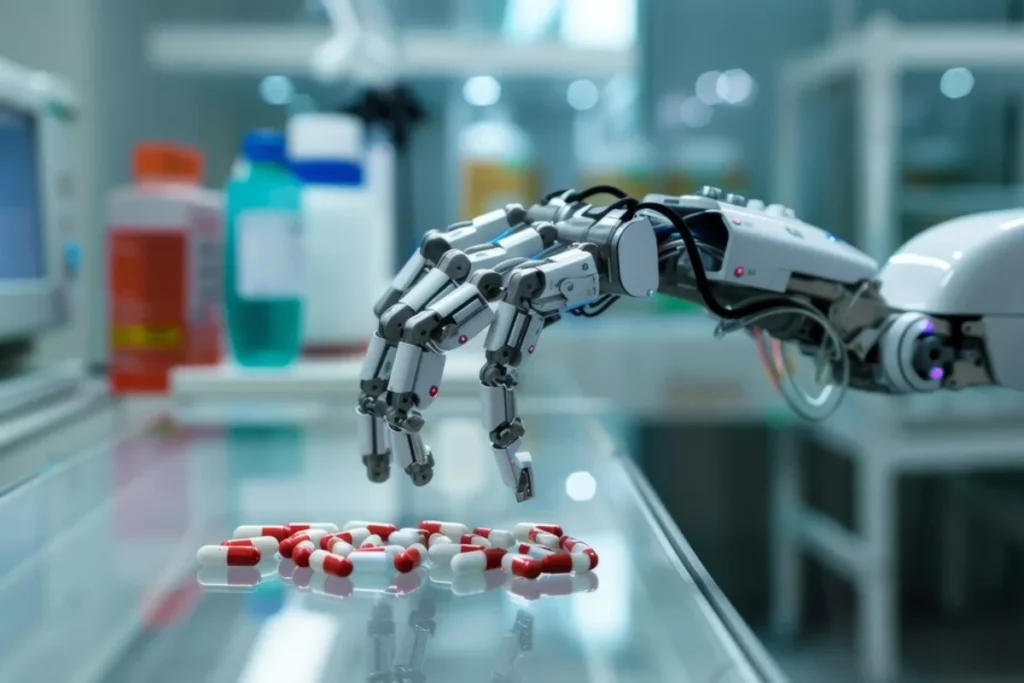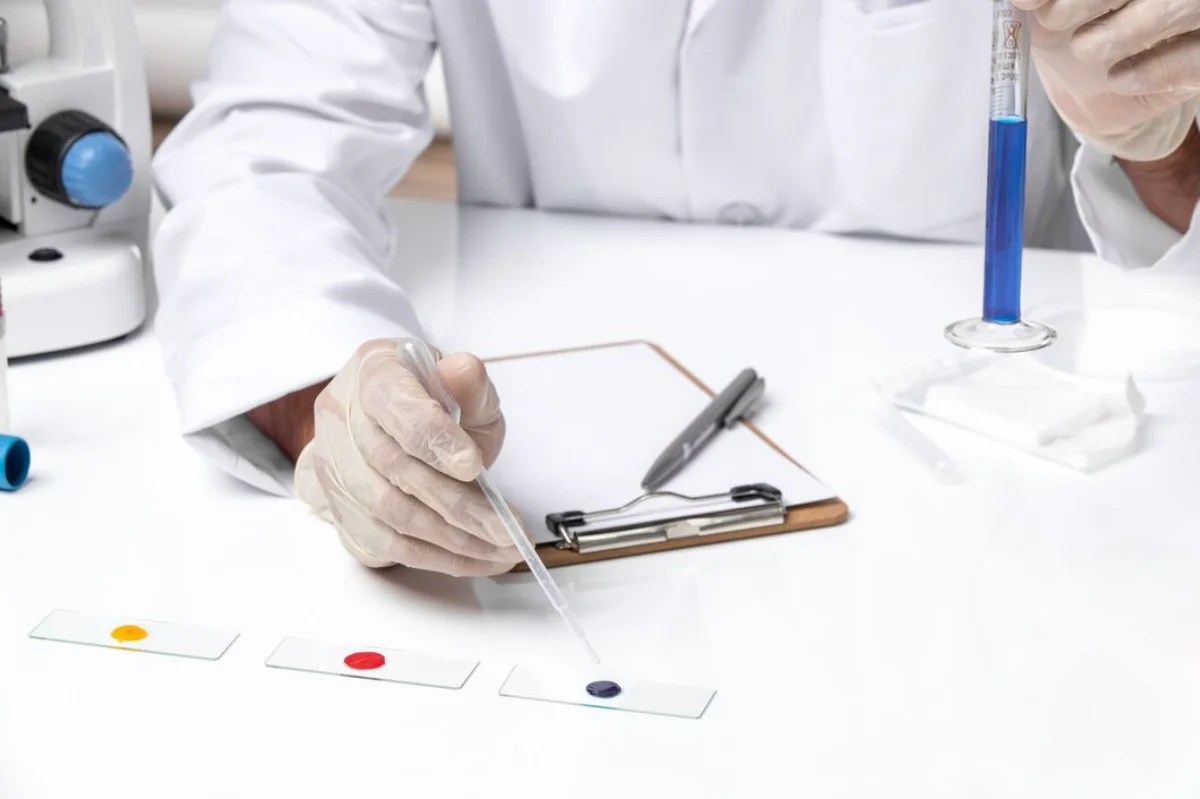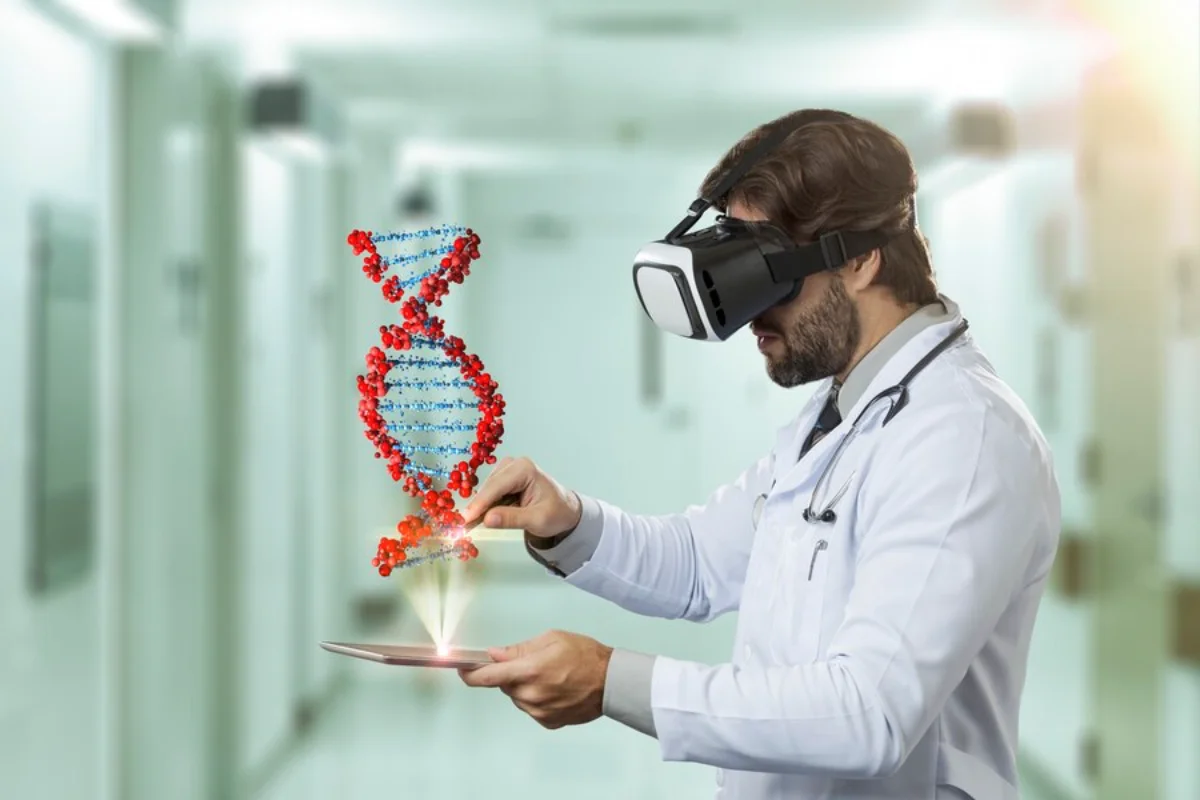The Technology Blog

The Role of AI in Drug Discovery & Development
The pharmaceutical industry has faced significant challenges in developing new drugs. This process is often costly, slow, and inefficient. However, advancements in AI in drug research are changing the game. They speed up the search for promising compounds and shorten the time it takes to bring new treatments to market.
By using pharmaceutical AI, researchers can analyse large datasets, spot potential drug candidates, and predict their effectiveness with high accuracy. Moreover, biotech machine learning is crucial in refining drug formulations, optimising clinical trials, and personalising treatments based on genetic information.
This article explores how AI is reshaping drug discovery and development. It highlights the benefits it brings and the challenges that need attention for broader adoption in the pharmaceutical industry.

The Traditional Drug Discovery Process and Its Limitations
To understand the impact of AI in drug research, we first need to look at the traditional drug discovery process and its issues.
Stages of Drug Discovery and Development
- Target Identification – Finding biological targets like proteins or genes linked to a disease.
- Drug Screening – Identifying potential compounds that can interact with the target.
- Preclinical Testing – Conducting lab and animal studies to check safety and effectiveness.
- Clinical Trials – Testing drugs on humans to determine effectiveness and spot side effects.
- Regulatory Approval – Submitting data to authorities for approval before launching the drug.
Challenges in Traditional Drug Discovery
- High Costs – Developing a new drug can cost billions, with no success guarantee.
- Time-Consuming Process – Drug development often takes 10-15 years before reaching the market.
- High Failure Rates – Many drug candidates fail in clinical trials due to unforeseen toxicity or lack of effectiveness.
- Limited Data Processing – Traditional methods depend on human expertise and trial-and-error, slowing innovation.
This is where pharmaceutical AI is making a significant difference, streamlining the process and boosting efficiency.

How AI is Transforming Drug Discovery
1. AI for Target Identification and Drug Screening
The first step in drug discovery is identifying a biological target linked to a disease. AI helps researchers:
- Analyse genetic and molecular data to find potential drug targets.
- Predict how compounds will interact with these targets using biotech machine learning algorithms.
- Cut the time needed to identify promising drug candidates from years to months.
For instance, DeepMind’s AlphaFold has changed protein structure prediction, aiding researchers in understanding drug interactions with human proteins.
2. AI-Powered Drug Design
After identifying a target, AI in drug research is used to design new drug molecules. AI can:
- Create new chemical structures with improved properties.
- Predict a molecule’s solubility, stability, and toxicity before testing.
- Use reinforcement learning to refine drug designs for better efficacy and fewer side effects.
Pharmaceutical companies are now using pharmaceutical AI to develop more effective and safer drug candidates faster than before.
3. AI in Preclinical Testing
Before humans can test a drug, preclinical studies assess its safety and impact. AI enhances this by:
- Predicting toxicity and side effects – AI analyses existing data to foresee potential risks before physical testing.
- Simulating drug interactions – AI simulations model a drug’s behaviour in the body, reducing the need for extensive lab work.
- Automating lab research – AI-driven robotics and machine learning help with high-throughput screening, speeding up the identification of viable compounds.
4. AI-Optimised Clinical Trials
Clinical trials are vital but often inefficient. AI in drug research improves this by:
- Patient Recruitment – AI finds suitable candidates by analysing health records, genetic data, and demographics.
- Trial Monitoring – AI tracks real-time patient responses, spotting side effects and adjusting protocols when needed.
- Predictive Analysis – AI forecasts trial success, helping companies make informed decisions.
With AI, clinical trials become more cost-effective and less likely to fail.
5. AI in Personalised Medicine
The rise of biotech machine learning is paving the way for personalised medicine. AI tailors treatments to individual genetic profiles by:
- Analysing a patient’s genome to find the best treatment.
- Predicting drug responses based on genetic differences.
- Recommending dosage adjustments for maximum effectiveness and minimal side effects.
This approach is changing treatment strategies, especially in oncology and rare genetic diseases.

The Benefits of AI in Drug Research
1. Faster Drug Development
AI speeds up drug discovery by automating data analysis, reducing timelines from decades to just a few years.
2. Reduced Costs
By lowering the number of failed drug candidates and optimising trials, pharmaceutical AI cuts research and development costs significantly.
3. Improved Accuracy
AI processes vast amounts of biological data, leading to greater precision in identifying drug targets and predicting interactions.
4. Enhanced Drug Safety
Predictive AI models identify potential adverse effects earlier, lowering the risk of harmful drugs reaching the market.
5. Increased Success Rates
AI boosts the chances of a drug passing clinical trials by pinpointing the most promising candidates using real-world data.
Challenges and Ethical Considerations in AI-Driven Drug Development
While AI offers great benefits, it also presents challenges:
1. Data Privacy and Security
- AI needs patient data, raising privacy and compliance concerns.
- Secure handling of genetic and medical records is vital for patient confidentiality.
2. Bias in AI Algorithms
- AI models can inherit biases from training data, leading to unequal drug access and effectiveness.
- Diverse and representative datasets are essential to prevent biased outcomes.
3. Regulatory Approvals
- Using AI in drug development must comply with UK regulations and global standards.
- Regulatory agencies are adapting to AI innovations, which may slow approvals.
4. Integration with Traditional Research Methods
- AI should complement traditional drug discovery, not replace it.
- Collaboration between AI developers and pharmaceutical experts is necessary for success.
The Future of AI in Drug Discovery
The future of AI in drug research looks bright, with ongoing advancements expected in:
- AI-Generated Drug Libraries – AI will autonomously design thousands of potential drugs.
- Quantum Computing in Drug Discovery – This combination will revolutionise molecular simulations and testing.
- AI-Powered Vaccines – AI will help speed up vaccine development for emerging infectious diseases.
- Integration with Robotics – AI-driven robots will further automate drug screening and testing, improving efficiency.
As AI technology evolves, its impact on the pharmaceutical industry will grow, making drug discovery faster, cheaper, and more effective.









